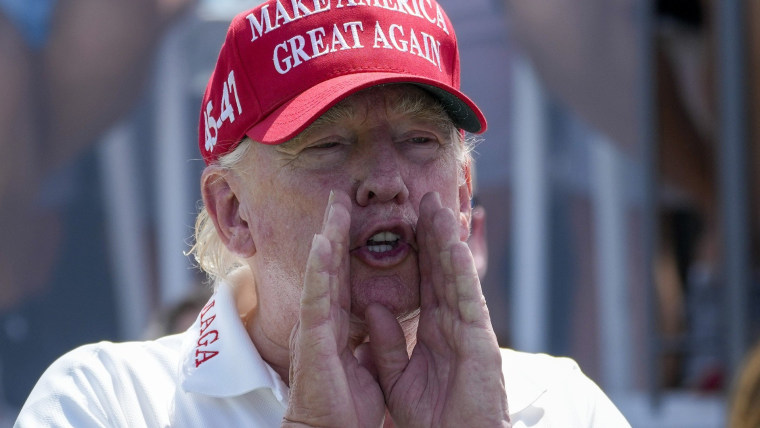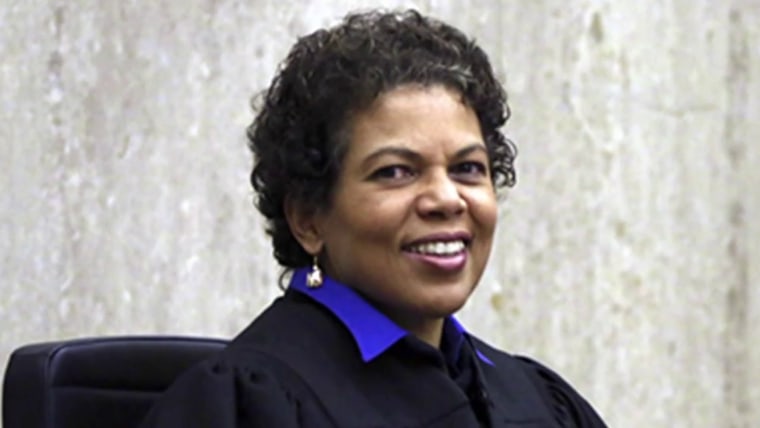Former President Donald Trump now stands criminally indicted in four separate cases. Presently, he is on pretrial release in three of those cases, but it’s more than likely that the judge in the fourth case also decides to release him pending trial in Fulton County, Georgia. However, given a recent post in which Trump declared that a witness “shouldn’t” testify before Fani Willis’ grand jury there, the former president may be at higher risk of a judge getting sick of his bad behavior.
I attended Trump’s arraignment hearing in early August in federal court in Washington, D.C. And I heard Magistrate Judge Moxila A. Upadhyaya say something that caught my attention.
In the federal system, there are a number of laws that guide judges in deciding when they can and/or should detain a defendant pending trial. The Federal Bail Reform Act of 1966 established a presumption in favor of pretrial release. Congress further fine-tuned the law by amending the act in 1984, requiring a judge to release a defendant pending trial unless the judge concludes that detention is necessary to reasonably assure the defendant will not flee and/or endanger others. When a judge decides to release a defendant pending trial, they will set conditions of release that, if violated, can result in sanctions, up to and including pretrial detention.
I attended Trump’s arraignment hearing in early August in federal court in Washington, D.C. And I heard Magistrate Judge Moxila A. Upadhyaya say something that caught my attention. She told Trump that his “most important condition” of release was not committing a state, federal or local crime while on release. If Trump were to do so, she warned, a warrant could be issued for his arrest and he could be detained pending trial.
But on Monday, Trump posted something to social media that certainly could be interpreted as violating that “most important” condition of release. Just a few hours before the Georgia grand jury voted to indict him, the now-defendant posted: “I am reading reports that failed former Lt. Governor, Jeff Duncan, will be testifying before the Fulton County Grand Jury. He shouldn’t.” (Trump, who misspelled Duncan's first name, Geoff, went on to call Duncan “a nasty disaster.”)

Here we have Trump publicly telling a witness who he knew was scheduled to testify before a grand jury investigating his alleged crimes, that the witness should not testify. Cutting right to the chase, this is Trump taking a page out of the “Witness Tampering for Dummies” playbook.
As is true in most jurisdictions, Georgia state law criminalizes attempts to “influence witnesses.” Specifically, Georgia Code section 16-10-93 makes it unlawful to knowingly use intimidation or threats to persuade or attempt to persuade another, to influence, delay or prevent the person’s testimony in an official proceeding. (I’m focusing on Georgia law specifically since Trump was threatening a witness testifying in that state.)
This apparent violation of Georgia state law, which would constitute a violation of Trump’s pretrial release conditions in his D.C. case, needs to be addressed by Judge Tanya Chutkan, the presiding judge in the D.C. proceeding.
Here, it’s important to note that not all violations of release conditions are created equal. When a judge is notified of a possible violation of a condition of release, the federal law applies different burdens of proof depending on the nature of the violation. Specifically, 18 U.S. Code, section 3148, directs that, if a person violates a condition of pretrial release in a federal case, the judge shall enter an order of revocation and detention if the judge finds that there is probable cause to believe that the person committed a federal, state or local crime while on release. This relatively low evidentiary burden of proof stands in stark contrast to the much higher burden of proof — clear and convincing evidence — that applies when a defendant is alleged to have “violated any other condition of release” short of a crime.

To say that defendant Trump has received different and far more favorable treatment in his criminal cases as compared to other defendants is an understatement. He stands indicted in four separate felony cases, spread across three jurisdictions, both state and federal. And yet, there has not even been a hint of any consideration of pretrial detention for a man criminally charged with unlawfully retaining classified documents, obstructing justice, violating our nation’s espionage laws, and seeking to thwart the peaceful transfer of presidential power. And now, Trump adds to an already distinguished criminal resume by allegedly attempting to influence a witness, in apparent violation of both state law and the conditions of his pretrial release.
It has often been said that witness tampering strikes at the very heart of our criminal justice system. If our system of justice is to retain any legitimacy, Trump’s latest transgression simply cannot go unaddressed. This is only the beginning of a convoluted and lengthy process of justice for Donald Trump. Those involved have a responsibility to apply the law equally, without fear or favor. Otherwise, his brazen flouting of conventions, not to mention laws, may only get worse. And that, in turn, will make the path toward justice even murkier.

